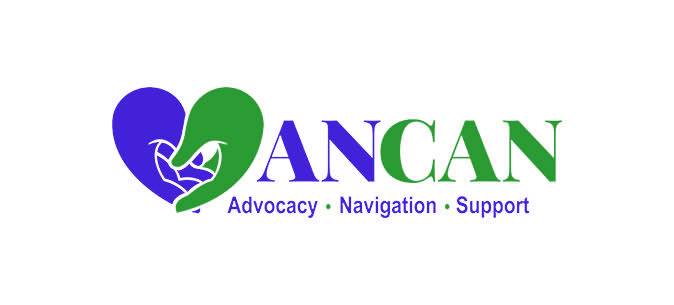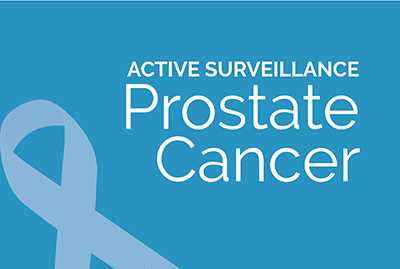
by Rick Davis | Mar 8, 2020 | Blood Cancers, Brain Tumors, Men 'Speaking Freely', Men's Breast Cancer, Prostate Cancer, Recent News, Women's Breast Cancer
Like many of you this week, I have been reading multiple articles about how the corona virus may effect those living with cancer and how best to protect ourselves. Many of us who did not take this threat too seriously 3 weeks ago, are now reevaluating although I remind everyone that it may be no worse than the influenza threat that kills many each year – albeit we don’t read about it daily. WHO estimates between 250,000 – 650,000 die from influenza annually.
Amongst several articles that are in my inbox, I have a couple of first hand experiences. The first is from Shira Zwebner, a regular contributor to the CURE website, that you’ll find here; and the second is by our Board Chair Peter Kafka, reprinted from his meeting reminder to the virtual group Peter moderates. (rd – apologies for all the typos first time around; forgot to proof!!)
What A Difference A Week Makes
All of the sudden the world is thrust into a new paradigm in reaction to the onslaught of the Covid-19 coronavirus. I suspect that many of us can tell stories about how our lives and communities are already being impacted by this new threat. It looks like we are all in for quite a ride for some time to come. Some might discount these events or downplay the seriousness of the virus, but it can’t be denied that there is an overriding sense of fear and anxiety in many quarters.
How does this relate to those of us dealing with cancer? Oddly enough there are many crossovers and “take homes”. Who among us did not feel fear and anxiety and a sense that our world as we had known it was coming to an end when we were first diagnosed with this cancer? I know for myself that fear was a dominant feeling. Because it was all so new and I was unprepared and uninformed my emotional response was quite out of control. Fortunately, I found support quickly and was led to experts in the field who could set me on a steady course and explain exactly what was going on and help put things in perspective.
Most of us have found that our worlds did not completely fall apart. Yes, many things may have changed – they certainly have for me and those closely around me. But life has gone on and adjustments have been made. We humans are remarkably resilient creatures and can adapt to amazing challenges and circumstances. For myself, I have just embarked upon a heavy-duty regimen of chemotherapy for my aggressive advanced prostate cancer. Perfect timing to put myself into a situation where my immune system will be further compromised by the chemotherapy infusions. And what a time to have to show up at our local hospital every three weeks for a day of infusions. So much for my luck.
I guess I am one of the lucky ones who has jumped to the head of the line in the high-risk category for dying from Covid-19 Coronavirus, over 70 years old with cancer and a compromised immune system. But somehow, I am just not over consumed by this thought at the moment. I am not going to be cavalier and take stupid risks, but I can really only deal with one big threat at a time and for me it happens to be the prostate cancer. I think my ongoing 6-year journey with this disease has put me in a mindset of preparedness. Fear is no longer driving my decisions and actions. Understanding and intelligence rule the day for me.

by Len Sierra | Mar 8, 2020 | Recent News, Advocacy, Cancer Resources, generic drugs
The coronavirus outbreak has many patients worrying about whether they will be able to continue receiving their medications. The FDA is actively working on ensuring that this doesn’t happen and while they have already made some progress, they will continue to take additional measures. You can read the latest FDA Supply Chain Update in its entirety here.
The information below represents the more salient points of that update, IMO:
Since January 24, the FDA has been in touch with more than 180 manufacturers of human drugs, not only to remind them of applicable legal requirements for notifying the FDA of any anticipated supply disruptions, but also asking them to evaluate their entire supply chain, including active pharmaceutical ingredients (the main ingredient in the drug and part that produces the intended effects, e.g., acetaminophen) and other components manufactured in China.
Also, as part of our efforts, the FDA has identified about 20 other drugs, which solely source their active pharmaceutical ingredients or finished drug products from China. We have been in contact with those firms to assess whether they face any drug shortage risks due to the outbreak. None of these firms have reported any shortage to date. Also, these drugs are considered non-critical drugs.
The FDA is using all our existing authorities to address COVID-19, and we welcome the opportunity to work with Congress to further strengthen our response capabilities and emergency preparedness. There are four specific proposals included in the President’s budget that would better equip the FDA to prevent or mitigate medical product shortages.
- Lengthen Expiration Dates to Mitigate Critical Human Drug Shortages: Shortages of certain critical drugs can be exacerbated when drugs must be discarded because they exceed a labeled shelf-life due to unnecessarily short expiration dates. By expanding the FDA’s authority to require, when likely to help prevent or mitigate a shortage, that an applicant evaluate, submit studies to the FDA, and label a product with the longest possible expiration date that the FDA agrees is scientifically justified, there could be more supply available to alleviate the drug shortage or the severity of a shortage.
- Improve Critical Infrastructure by Requiring Risk Management Plans: Enabling the FDA to require application holders of certain drugs to conduct periodic risk assessments to identify the vulnerabilities in their manufacturing supply chain (inclusive of contract manufacturing facilities), and develop plans to mitigate the risks associated with the identified vulnerabilities would enable the FDA to strengthen the supply chain by integrating contingencies for emergency situations. Currently, many medical product manufacturers lack plans to assess and address vulnerabilities in their manufacturing supply chain, putting them, and American patients, at risk for drug supply disruptions following disasters (e.g., hurricanes) or in other circumstances.
- Improve Critical Infrastructure through Improved Data Sharing and Require More Accurate Supply Chain Information: Empowering the FDA to require information to assess critical infrastructure, as well as manufacturing quality and capacity, would facilitate more accurate and timely supply chain monitoring and improve our ability to recognize shortage signals.
- Establish Reporting Requirements for Device Manufacturers: The FDA does not have the same authorities for medical device shortages as it does for drugs and biological products. Among other things, the FDA proposes to require that firms notify the agency of an anticipated meaningful interruption in the supply of an essential device; require all manufacturers of devices determined to be essential to periodically provide the FDA with information about the manufacturing capacity of the essential devices they manufacture

by Rick Davis | Mar 6, 2020 | Blood Cancers, Brain Tumors, Cancer Resources, Complementary Medicine, Exercise, Men's Breast Cancer, Prostate Cancer, Women's Breast Cancer
I am copying a post recently received from New PCI publcizing a short ASCO survey on how you embrace exercise and diet. As many know, AnCan strongly endorses exercise as part of any cancer management program; and sensible diet may also be significant and rarely hurts. I have taken the survey and encourage anyone previously diagnosed with any type of cancer to do so. (rd)
The American Society of Clinical Oncology (ASCO) has put together a brief research survey to learn more about patients’ experiences with cancer care. Specifically, ASCO is interested in patient’s perspectives on how things like diet, exercise, and weight management are incorporated into cancer care.
The survey should take most people no more than 10 minutes maximum to complete. All questions are optional, and ASCO has stated clearly that no personally identifiable information will be collected.
If you are an individual with a personal history of prostate cancer (or cancer of any other type), please click here to take this patient survey. Thanks for your help to ASCO in seeking to improve cancer care.
If you know others who are > 18 years of age and who have been diagnosed with any form of cancer, ASCO would also appreciate it if you passed information about this survey on to those people too. ASCO is seeking the widest possible range of responses to this survey from the cancer patient community.

by Rick Davis | Mar 5, 2020
Active Surveillance Prostate Cancer Virtual Support Group
Active Surveillance (AS) for low-risk prostate cancer presents its own challenges that are very different from other treatment protocols. This virtual group is for men and caregivers on or considering AS to treat their condition. New participants are given priority to discuss their situation. Click here for detailed information.
1st, 2nd & 3rd Wednesdays & 4th Thursdays of each month at 8 pm EST/EDT (US)
Moderators: Joe Gallo, Ken Mason, Howard Wolinsky, Alexa Jett, Hugh Idstein.
Co-sponsors: UsTOO

by Rick Davis | Mar 5, 2020
Active Surveillance Prostate Cancer Virtual Support Group
Active Surveillance (AS) for low-risk prostate cancer presents its own challenges that are very different from other treatment protocols. This virtual group is for men and caregivers on or considering AS to treat their condition. New participants are given priority to discuss their situation. Click here for detailed information.
1st, 2nd & 3rd Wednesdays & 4th Thursdays of each month at 8 pm EST/EDT (US)
Moderators: Joe Gallo, Ken Mason, Howard Wolinsky, Alexa Jett, Hugh Idstein.
Co-sponsors: UsTOO


